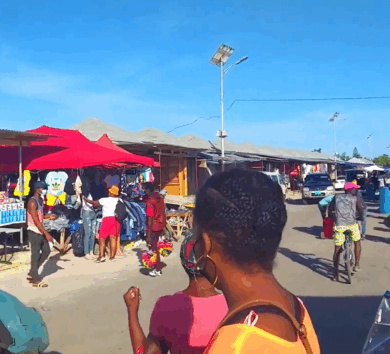

Jamaica has a revised population policy, which responds to shifts in the country’s demographic landscape and composition, including a declining child population, and to capitalise on the positive trends to support national development.
The National Population and Sustainable Development Policy (NPSDP), developed by the Planning Institute of Jamaica (PIOJ), was launched on World Population Day, Friday, July 11, at the AC Hotel by Marriott in Kingston.
It aims to inform decision-making to achieve the population goals of Vision 2030 Jamaica—National Development Plan and the population targets of the 2030 Agenda for Sustainable Development.
In his address, PIOJ Director General Dr Wayne Henry advised that notable changes in the country’s demographic landscape necessitated a comprehensive adjustment of the revised 1995 National Population Policy.
Over the last three decades, Jamaica’s demographic size, structure, composition and distribution have changed markedly in several critical areas.
Dr Henry pointed out that there has been a substantial reduction in population growth, reduction in the child population and major increases in the working age and elderly populations.

Jamaica has also seen an increase in life expectancy at birth to almost 75 years, as well as reductions in fertility among all reproductive age groups, higher levels of urbanisation and growth in medium-sized urban centres, and continuing high levels of international migration among professionals and skilled workers.
Dr Henry underscored that the revised policy is geared at ensuring that population processes are optimised to achieve a balanced population size, structure and distribution, and to improve the well-being of the Jamaican population in all dimensions of a sustainable, equitable and just society.
Dr Henry said the government is committed to ensuring the integration of population dynamics into all aspects of development planning.
“This is particularly so, given that the demographic dynamics are integral in all dimensions of sustainable development, social, economic and environmental,” he pointed out.
The NPSDP was developed with support from the United Nations Population Fund (UNFPA) and was led by the multi-sectoral population thematic working group, comprising representatives from ministries, departments, and agencies, private sector, non-government organisations, civil society bodies and academia.
It was launched simultaneously with the UNFPA’s 2025 State of the World Population (SWOP) Report, which focuses on fertility intentions and rights-based population policies.
The policy is guided by eight principles: respect for human rights; inclusive and participatory development; gender equality and equity; empowerment and personal responsibility; evidence-based decision making; resilience in the natural, built, social, cultural and economic environments; transparency and accountability; and reproductive rights and the power of choice.
It can be accessed on the PIOJ’s website at http://pioj.gov.jm/product/national-population-and-sustainable-development-policy-and-programme-of-action-jamaica/.







Comments